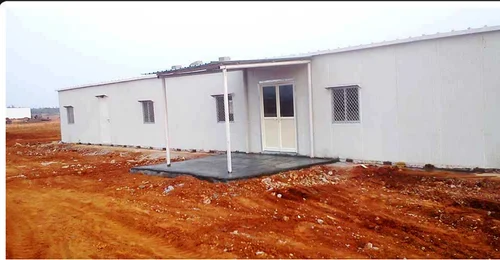
In today’s dynamic manufacturing landscape, the need for effective shelter solutions has become increasingly apparent. Manufacturers face a myriad of challenges, from space constraints to environmental factors, necessitating innovative and tailored solutions to meet their unique requirements. Shelter solutions refer to structures designed to provide protection and storage for goods, equipment, and personnel. For manufacturers, these solutions play a crucial role in ensuring operational efficiency and productivity. Whether it’s protecting raw materials from the elements or creating additional workspace for assembly lines, the right shelter solution can make all the difference. Maquiladoras in Mexico play a significant role in the country’s economy by providing employment opportunities and contributing to the manufacturing sector’s growth.
Challenges Faced by Manufacturers
Space Constraints
One of the primary challenges faced by manufacturers is the limitation of available space. With the expansion of operations and the introduction of new equipment, companies often find themselves struggling to accommodate their growing needs within existing facilities.
Storage Issues
Effective storage management is essential for manufacturers to maintain inventory levels and streamline production processes. However, inadequate storage space can lead to cluttered work areas, delays in accessing materials, and increased risk of damage or loss.
Environmental Factors
Manufacturing environments are often subject to various environmental factors, including extreme temperatures, humidity, and exposure to the elements. These conditions can pose significant challenges for maintaining product quality, worker safety, and equipment longevity.
Types of Shelter Solutions
Manufacturers have a range of shelter solutions to choose from, depending on their specific requirements and budget constraints. Some of the most common options include:
Temporary Shelters
Temporary shelters, such as tents or fabric structures, offer a quick and cost-effective solution for short-term needs. These structures are often used for events, temporary storage, or as temporary workspaces during construction projects.
Permanent Structures
Permanent structures, such as steel buildings or concrete warehouses, provide a more durable and long-term solution for manufacturers. These buildings offer greater stability, security, and customization options, making them ideal for companies looking to invest in a lasting solution.
Key Considerations for Manufacturers
When choosing a shelter solution, manufacturers must consider several factors to ensure it meets their specific requirements:
Size and Capacity Requirements
The size and capacity of the shelter solution should align with the company’s current needs and future growth projections. Manufacturers must accurately assess their space requirements to avoid issues such as overcrowding or underutilization.
Durability and Strength
The shelter solution must be able to withstand the rigors of the manufacturing environment, including exposure to heavy machinery, harsh weather conditions, and potential impacts from materials or equipment.
Mobility and Flexibility
For manufacturers with changing operational needs or locations, mobility and flexibility are essential considerations. Modular or portable shelter solutions offer the flexibility to adapt to evolving requirements without the need for extensive construction or renovation.
Advantages of Tailored Shelter Solutions
Tailored shelter solutions offer several advantages for manufacturers, including:
Cost-Effectiveness
By customizing the shelter solution to meet their specific needs, manufacturers can avoid unnecessary expenses associated with oversized or undersized structures. Additionally, tailored solutions can help optimize space utilization and reduce operating costs in the long run.
Customization Options
Tailored shelter solutions allow manufacturers to customize various aspects of the structure, including size, layout, materials, and features. This customization enables companies to create a shelter solution that perfectly aligns with their operational requirements and aesthetic preferences.
Scalability
As manufacturers grow and evolve, their shelter needs may change accordingly. Tailored solutions offer scalability, allowing companies to easily expand or modify their shelter infrastructure to accommodate changing demands without disrupting ongoing operations.
Case Studies
Several manufacturers have successfully implemented tailored shelter solutions to address their unique challenges and achieve their business goals. These case studies serve as valuable examples of the effectiveness and versatility of customized shelter solutions in real-world scenarios.
Future Trends in Shelter Solutions
Looking ahead, several trends are shaping the future of shelter solutions for manufacturers:
Technological Advancements
Advances in technology, such as automation, robotics, and IoT integration, are revolutionizing the design and functionality of shelter solutions. Manufacturers can leverage these technologies to enhance productivity, efficiency, and safety within their facilities.
Sustainable Options
With increasing emphasis on sustainability and environmental responsibility, manufacturers are exploring eco-friendly shelter solutions that minimize their carbon footprint and reduce energy consumption. From green building materials to renewable energy sources, sustainable options are becoming increasingly prevalent in the shelter industry.
Conclusion
Shelter solutions tailored for manufacturers offer a practical and efficient way to address the unique challenges of the modern manufacturing environment. By considering factors such as space constraints, storage issues, and environmental factors, companies can choose the right shelter solution to support their operations and achieve long-term success.







